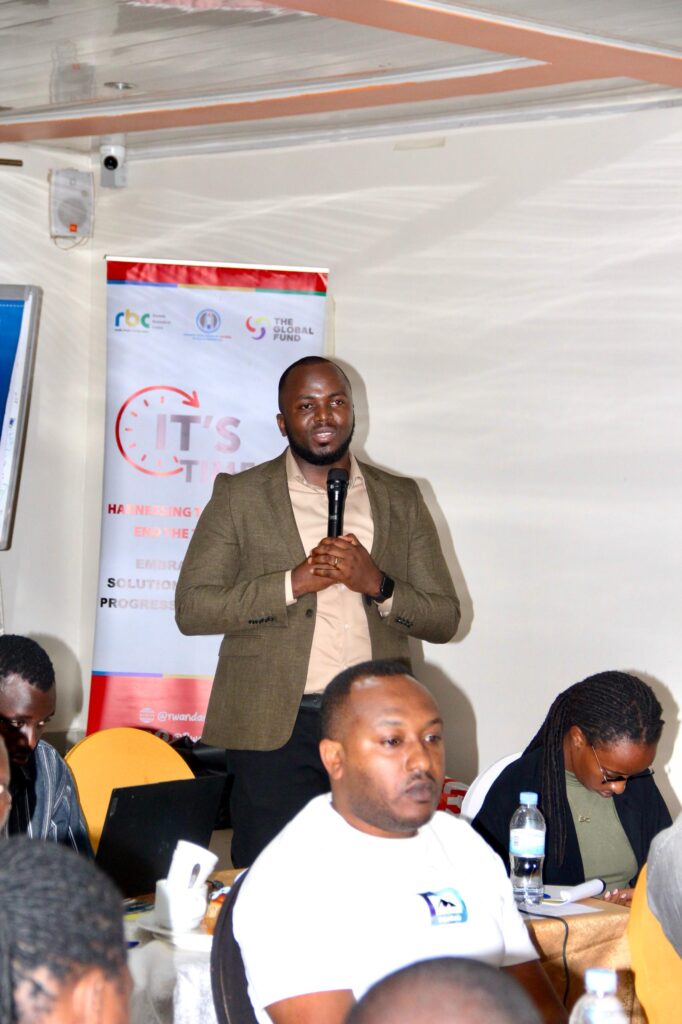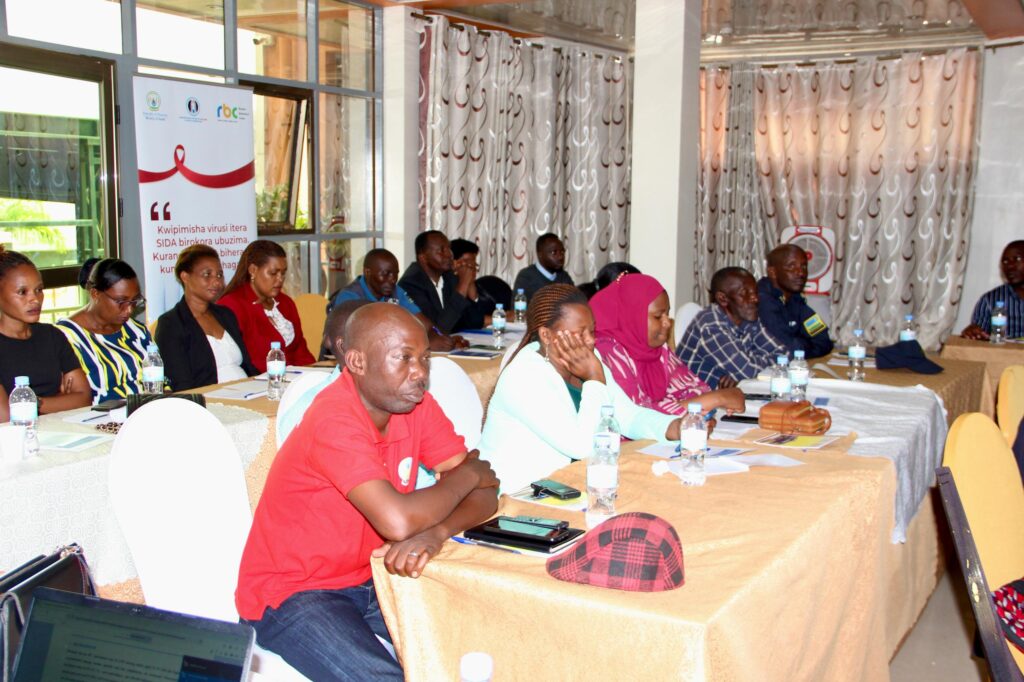By Elie Mutangana.
The Rwanda NGOs Forum on HIV/AIDS and Health Promotion, in collaboration with the Rwanda Biomedical Centre (RBC) and with support from the Global Fund, has launched an Integrated Community Led Monitoring Model and community data management digital system for HIV, TB and Malaria.
The model was announced during an ‘Introductory and Orientation meeting with local authorities, health facilities staff and representatives of people affected by HIV, TB and Malaria’ held in Gasabo district of City of Kigali.
The new strategic model aims to support and enhance health service delivery, with a specific focus to high-risk groups affected by HIV/AIDS, Tuberculosis and Malaria.
According to officials, the high-risk groups affected by HIV, TB and Malaria include Female Sex Workers (FSWs), Men who have Sex with Men (MSM), Adolescent Girls and Young Women (AGYW), People Who Use Drugs (PWUD); People Living with HIV (PLHIV),
Also, there include miners, rice farmers, youth and fishermen, People with Disabilities; children under five years. Prisoners, hotels and lodge staffs as well their clients are reportedly prone to the three diseases infections.
Speaking to the media, Louis Ngabonzima, Director of Programs at the Rwanda NGOs Forum, emphasized the community data management system’s role in facilitating information sharing on quality service delivery to PLHIV; Key and Vulnerable Populations/High Risk groups affected by HIV, TB and Malaria at health facilities and community levels.
“Today, we have launched the ‘Integrated Community Led Monitoring Model and Community data management System,’ which combines HIV, TB, and Malaria”.
Focusing on community data management system, NGABONZIMA stressed how the community system will capture data health services into one platform.
“This new community system will provide valuable, accurate and real time data on quality services delivered to those at high risk of these diseases. The community data will inform decision makers on areas for healthcare service improvement leading for change and improving the wellbeing of key and vulnerable populations affected by HIV, TB and Malaria in Rwanda”

Incorporating digital model
While the traditional model used in data collection couldn’t highlight specific challenges faced by the KPs effectively, the new model will use ‘Digital community data management system’ where community monitors will be equipped with digital gadgets(tablets) to carry out data collection.
Furthermore, it will be a platform using a software that will be installed in the tablets and be used by monitors to swiftly input data.
Finally, the data will be shared to different concerned actors including; Ministry of Health, Rwanda Biomedical Centre (RBC) as well as stakeholders for them to review and recognize the key findings from the system.
“We are meant to go and find the aforementioned populations, ask them questions regarding their specific challenges, particularly about how they access and receive different services tailored for them”. Said Eric Dushimimana, a community monitor who works at Hope and Care Organization.
He hails the new system as it will provide accurate data that will indicate gaps, hence enabling policy makers to find solutions.
Health care providers and health facilities leaders optimistically expect that the model will help gather feedback from patients, determine their satisfaction to enhance quality service.
For service users, particularly the specific groups, the model will relieve them from diverse challenges faced when seeking care.
“We often face judgement from health care providers, for example when seeking ARV treatment service which lead to self-stigma and embarrassment. With the new model, all the existing challenges will be shared in the system” said a member of FSWs group.
She stressed. “The traditional way like suggestion box at health facilities have been not reliable. We believe that this new digital model will enable concerned authorities recognize our concerns and address them”. The member shared.
Additionally, authorities believe that prioritizing these high-risk groups in the fight against the three diseases will help the country achieve desired outcomes. Data show that Rwanda has made significant strides in addressing HIV, TB and Malaria prevalence in among the key and vulnerable populations.





